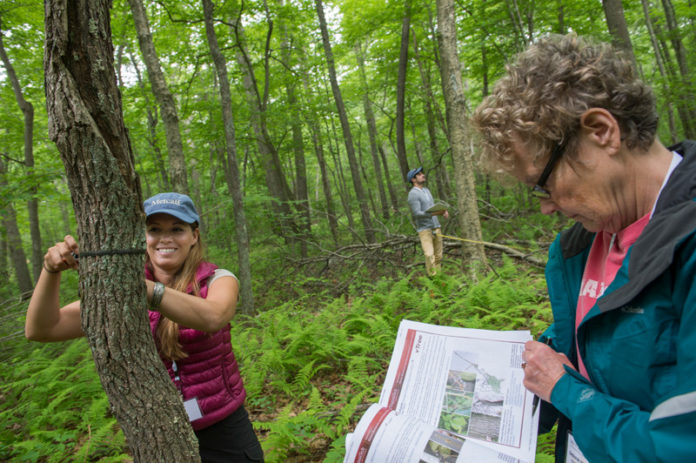
Rhode Island is building a name for itself in the business of environmental training for journalists, thanks in part to the 15-year-old Metcalf Institute for Marine and Environmental Reporting, says spokeswoman Karen Southern.
“The [University of Rhode Island’s Graduate School of Oceanography] has an international reputation and the scientists who are part of the immersion workshop are likely to be quoted in stories around the world,” Southern said. “In a time when Rhode Island is working to improve its image and position itself as an emerging knowledge economy, these journalists give the state a lot of positive exposure.”
Nine more journalists from around the world have added Rhode Island scientists to their digital Rolodexes after spending a week at the institute, located at the graduate school on Narragansett Bay, in a workshop from June 9-15. The group brought the 15-year total to 200 reporters. These journalists give Rhode Island’s environmental experts a connection to TV, radio, newspaper, magazine and online media outlets around the world.
“When you give international journalists such intensive insight on topics they want to report on, and we’re introduced to leading scientists, of course tomorrow they’re going to be my sources,” said Italian journalist Laura Daverio, a foreign correspondent for RSI Swiss television who is based in Beijing.
If the local economic impact on the institute can’t be measured in dollars and cents, it’s the kind of exposure tourism and chamber of commerce leaders often pray for. The stories, for a change, are not likely to mention Rhode Island’s struggling economy, stubbornly high unemployment rate or the skills gap that sends businesses to other states.
Instead, the journalists go in-depth on climate change, water quality, forestry, coastal habitats and marine geology.
“Our outreach seems to be growing, but the grants for pure science research have been harder to get because there’s been consolidation,” said King.
King and his colleagues have led various environmental field workshops over the years. This year, his focus was on climate change and projected increases in sea-level rise, with hands-on, or more like feet-on-the-beach, experiences along the coastline of the Ocean State.
Based in Houston and covering the oil and gas industry for CCTV America, China’s English-language news channel, journalist Ginger Vaughn has also worked in Japan.
“Rhode Island is so beautiful and seems so environmentally sound,” said Vaughn. “It has a lot of resources with the forests and the ocean and the great scientists who are taking us on excursions and showing us how they analyze data.”
The immersion not just in issues, but in how scientists work, has gained recognition for Metcalf and Rhode Island, said Sunshine Menezes, Metcalf executive director.
“We are one of very few organizations that provide this kind of professional experience. We help journalists understand the scientific method,” Menezes said. “The journalists get a chance to learn how to translate science for public policy, for regulators and policymakers. This also helps them do a better job of translating science for their audience.” •













As one of the 200 journalists who have gone through the metcalf program, I can tell you that it ereally does allow an environment reporter to add to his electronic rolodex. I used URI proffessors in an NPR climate change documentary I produced 10 years ago…I would not likely have found them, or covered the scenes tjhe program offered. without Metcald. Rhode Islanders should be rightfull proud of the program.
Steve Krueger
Retired public radio reporter
Seattle